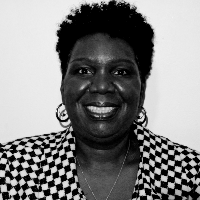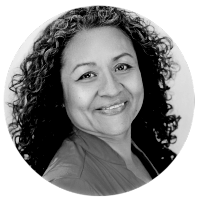Credit Tier Breakdown: Good Credit

Here we'll discuss the impact a credit score in this tier will have on the loans available to you and the interest rates you can expect to be charged. We're also going to show you how to begin improving your score.
What Kind of Loans Can You Get?
If you have a score between 680 and 719, then you have a generally good record of using credit, but there is still something holding you back from reaching your full credit potential. It could be that your credit card balances are a bit high (above 35% of your total credit limit), or that you forgot to pay a bill or two sometime in the past couple of years.
Either way, you’re still going to qualify for most kinds of financial products. According to Roslyn Lash AFC®, Founder of Youth Smart Financial Education Services, “A person with a good credit score can get better interest rates which translates into a lower payment. There are other benefits too, such as lower insurance premiums, less expensive car payments, and even a better chance of employment."
If you have good credit and want a credit card, you can just choose from one of the many offers you probably have piling up on your dining room table. Getting a car should be a snap too. Sure, you might have to settle for a slightly less expensive model (or a nice used car) if you want to get a good rate, but you’ll definitely be able to find something that works.
The same goes for buying a house. With a credit score in this range, you’ll certainly qualify for a mortgage loan, but the rates you’ll get might mean going for a slightly less expensive home. Instead of the 4-bed, 3-bath, maybe the 3-bed, 2-bath is a better financial fit. Just make sure that you read your contract thoroughly because in this range you are slightly more vulnerable to predatory housing lenders.
One area where you’ll run into issues qualifying for a loan is with an unsecured loan from a traditional lending institution like a bank. These loans do not involve any collateral—which is property that the lender can claim if you don’t pay them back—so these loans are approved entirely on whether or not the lender thinks you can repay. Your credit score is absolutely crucial for these loans, and you might find yourself getting turned down—especially if you’re asking for a larger loan to consolidate your other debt.
What kind of Interest Rates Can You Get?
Remember, your FICO credit score is basically like a letter grade for the information credit report. It takes every bill you’ve paid, every balance you’ve carried over month-to-month, and every loan you’ve taken out and it spits out a three-digit number that tells lenders, “This is how person X handles borrowing money.”
A score in this range tells lenders that you are generally good with credit, but that you still represent a risk. If they lend you too much money at too low a rate, there is a chance that you will not pay the loan back—costing them thousands of dollars in the process.
That’s why borrowers with good credit scores see higher rates than borrowers with great credit. These scores are good enough that people aren’t going to be denied outright (except for certain unsecured personal loans), but they are low enough the lenders are going to need to protect themselves.
According to Lash, “A person with a 690 credit score would pay $976 monthly for a $200k 30-year mortgage. However, someone with a lower score of 650 would receive a higher interest rate and a payment of $1,053. Over the life of the loan, that's $27,560 more! Same house, different score and different payment.”
Using the MyFico Loan Savings Calculator, you will find that a person with a 690 credit score who was applying for a 60-month, $30,000 auto loan would pay an interest rate of 4.857 percent. Compare that to the 3.512 rate that a borrower with a 790 score would pay. Over the life of the loan, the borrower with the 690 score would pay an additional $1,096 compared to the borrower with the 760 score.
As for credit cards, personal finance reporter J.R. Duren says that “Most credit cards have three tiers of APRs than range from, on average, 16% to 25%. Middle-of-the-road credit scores may be able to snag the occasional low rate, but expect to get the middle rate, which hovers around 19-21%.”
What Can I Do to Improve My Score?
First thing's first, if you haven’t requested a copy of your credit report, do that. Under federal law, you are entitled to one free copy of your credit report per year from each of the three major credit bureaus: Experian, TransUnion, and Equifax. (For those keeping score at home, that’s a grand total of three free scores per year.)
You can request a free copy of your report by going to AnnualCreditReport.com. Once you have your report, you should go over it with a fine-tooth comb looking for two things: errors and clues. Information can differ between the credit bureaus—mistakes too—so it's a good idea to get all three reports to compare them.
Errors are information on your report that’s just plain wrong. Maybe there’s a credit card you paid off that is still showing a balance, or maybe you had a bill sent to collections that you paid in full but the collections account is still showing up as open. Whatever the error is, you should report it to the bureau immediately. For more information, check out what the Federal Trade Commission recommends when it comes to disputing errors on credit reports.
Clues are a bit different. A clue on your credit report is something that points you towards why your score isn’t as high as it could be. There are many different activities that can ding your credit, but the two biggest things are your payment history and your amounts owed. Missed or late payments or collections notices against you are going to bring down your score quite a bit, as will carrying balances above 35 percent on your credit cards.
While paying down those balances will help your credit score substantially, credit expert Chella Diaz is clear on the fact that you should not stop using your credit cards altogether. She suggests that you keep using your cards to pay for things like gas and groceries to keep them active.
"That is the biggest mistake people make when they want to increase their credit score,” says Diaz. “If there is no activity on the account, the credit card companies consider the account dead.”
Having your account closed out will reduce your amount of available credit, which means that the amount of credit you’re using will go up. That will mean paying down even more of your outstanding debt before you see any improvement in your score.

Roslyn Lash, is an Accredited Financial Counselor and the founder of Youth Smart Financial Education Services. She specializes in youth financial education, adult coaching and works virtually with adults helping them navigate through their personal finances i.e. budgeting, debt, and credit repair. Her advice has been featured in national publications such as USA Today, TIME, Huffington Post, NASDAQ, Los Angeles Times, and a host of other media outlets.

J.R. Duren, is a personal finance reporter for highya.com. He covers credit cards, credit scores, student loans and other topics important to consumers’ financial life.

Chella Diaz, is a mom, author, speaker and consultant. She empowers parents with young children to set up their kids to be their own bank. She facilitates workshops for college students. One of Chella’s greatest strengths is showing people the ways they can save money so they always have money for the things that are most important. You are the boss and the money is your employee. How are you going to manage it?


